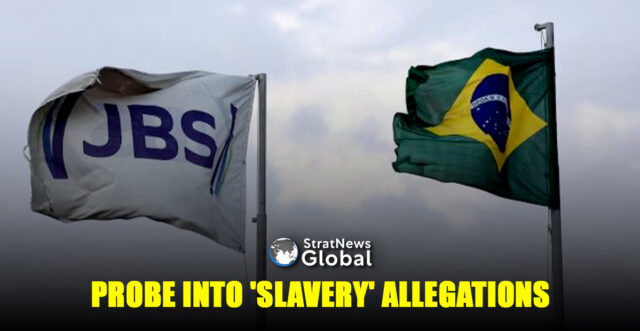Brazilian Labour Minister Luiz Marinho has stepped in to give a final review of an investigation into meatpacker JBS SA. According to official documents, the probe could result in one of its poultry plants being blacklisted for subjecting employees to conditions described as “slavery-like”.
That interruption of the usual process has stoked concerns among labour inspectors and legal experts who called it an unprecedented move that could introduce political influence into Brazil‘s decades-long effort to combat modern slavery.
The Labour Ministry did not respond to a detailed set of questions, but said the proceeding is ongoing and appeals by JBS are still under analysis.
Slavery-Like Conditions
The case stems from a federal raid last year that found ten people working in slavery-like conditions for a contractor hired to load and unload cargo for a JBS poultry unit called JBS Aves, in the state of Rio Grande do Sul.
Inspectors found that workers were subjected to illegally long shifts for as long as 16 hours and housed without access to clean drinking water, according to reports. The contractor had also made unlawful deductions from workers’ wages, making it harder for them to quit, the report found.
In a statement, JBS said on Thursday it immediately suspended the contractor, terminated the contract and blocked the company upon learning of the allegations. “The company has zero tolerance for labour and human rights violations,” the statement added.
Labour inspectors ruled on August 6 that JBS was responsible for the working conditions of the ten employees, as it failed to conduct due diligence ensuring the contractor was treating them lawfully.
Typically, such a ruling would result in the inclusion of the company in a list of employers responsible for submitting workers to slavery-like conditions, known as “the dirty list,” which is scheduled to be updated in October.
Once a company is included in the list, it stays there for two years. Beyond the reputational risks associated with the listing, companies are also barred from obtaining certain types of loans from Brazilian banks, which could mean serious financial consequences for a company linked to one of Brazil’s largest firms.
Wide Repercussions
After the inspectors’ ruling in August, a legal opinion by Brazil’s solicitor general’s office (AGU), found that the minister could pull the proceedings for his own review, citing the stature of JBS in the Brazilian economy.
JBS is one of Brazil’s largest employers, with some 158,000 workers in the country, according to the company. Its Seara division, which runs JBS Aves, reported net revenue of $2.2 billion from April to June, about a tenth of the firm’s total.
Adding JBS Aves to the slave labour list would have “repercussions of wide magnitude, with direct repercussions on the company’s assets, its commercial relations, its image in the market and, ultimately, could generate a significant impact on the economic sector itself at the national level,” AGU wrote.
AGU did not immediately reply to a request for comment.
On Monday, Marinho pulled the proceeding for his review, according to a document.
Such a move is unprecedented in over two decades that a dedicated task force has been managing Brazil’s slave labour blacklist, labour inspectors and legal experts said.
The minister’s move has caused “deep bewilderment and concern” among those who work directly on slave labour cases, said Renato Barbedo Futuro, the president of the association of federal labour inspectors in Rio Grande do Sul, in a public statement.
The ministry’s decision could have consequences beyond the JBS case, as it sets precedent for other firms to petition the minister to intervene in their cases, said Livia Miraglia, a labour law professor at the Federal University of Minas Gerais who specializes in slave labour cases for over 20 years.
“I have never seen anything like it,” she said.
(With inputs from Reuters)





